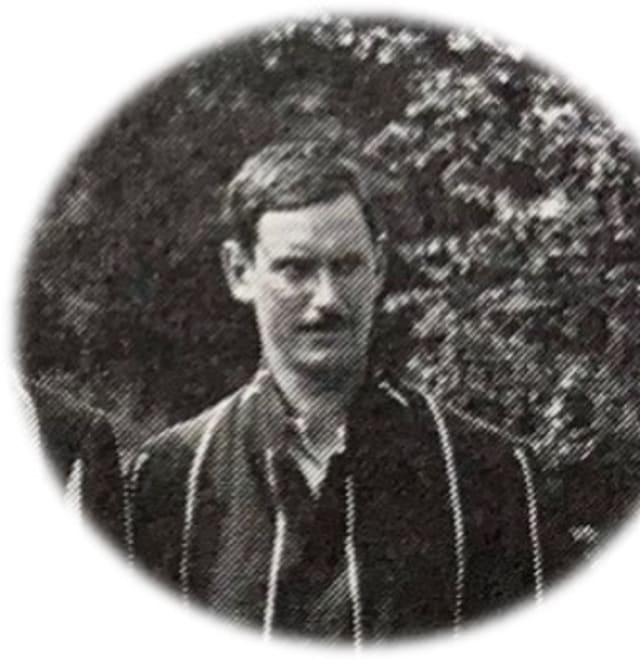Although it wasn’t until August 1871 – a month after his 23rd birthday – that WG Grace played his first game at Trent Bridge (it would be another 28 years before his one and only Test Match there), his forty-plus year association with Nottingham and Nottinghamshire cricket began when he was a small boy.
In one of the many volumes devoted to his life and career, WG recalls that “I went to London to see this match” – a meeting between Nottinghamshire and the All England XI at Lord’s in 1853 when he was just four years old. Curiously he then says his ‘earliest’ cricketing memory is of a match the following year when the All England team came to Bristol to play the XXII of West Gloucestershire.
Apparently, William Clarke gave a copy of the book Cricket Notes to Martha Grace, mother of WG and his cricketing brothers. Another year on and the elder brother, Edward, fielded as long stop next time the AEE played at Bristol with such distinction that Clarke gave him a bat.
In 1866 one of the more unlikely links between the Great Man and this county took place when ‘W G Grace Esq’ (he was not yet a qualified doctor) captained a combined Sheffield and Nottingham Colts XVIII against an All England XI skippered by George Parr. Grace was certainly young enough to qualify as a ‘Colt’, being only 17, but quite how and why he was chosen as captain for this fixture, played at Sheffield’s Hyde Park, is not known.
That ‘All England XI’ was not exactly representative – comprising players from just Yorkshire and Nottinghamshire.
Only one First-Class match was played at the ground in Meadow Road, Beeston, when in 1870, WG opened both the batting and the bowling for the Gentlemen of the South v Gentlemen of the North. ‘Considerable interest was excited’, read a local report, ‘…Mr W G Grace, the crack batsman, had never been in this neighbourhood before’.
In this game, however, WG was outscored by his brother GF ‘Fred’ Grace, who made his highest career score of 189no; the Great Man still made a substantial impact taking nine wickets – five being the first five to fall in the North’s first innings.
Perhaps the most dramatic game of all Grace’s encounters with Notts came earlier in 1870 when Nottinghamshire visited Lord’s to play the MCC Club & Ground. George Summers of Notts was hit high on the head by a ball from Derbyshire’s Jack Platts in the second innings and had to ‘retire hurt’. He was carried insensible from the field and although he recovered sufficiently to return to Nottingham - against medical advice - George Summers died at his home three days later, on 19 June 1870.
There is just one account in a biography that says Grace attended Summers’s funeral but no contemporary report (nor later research) can confirm this story (if anyone knows better please tell us).
That Grace was affected by the incident is beyond doubt; one biographer states that “WG's great century [he made 117no] disappeared into oblivion, barely remembered even by him”, and it is probable that he contributed to the raising of a memorial to George Summers that still stands in Nottingham’s General Cemetery.
By the time Gloucestershire had achieved First-Class status, WG was well accepted as the best, and most famous, cricketer of the day and when Trent Bridge welcomed him and his county for their first fixture in 1871, his presence swelled the gate.
The Nottinghamshire Guardian reported, “the great centre of attraction was, of course, Mr W G Grace, a champion batsman, who appeared for the first time on the Trent Bridge ground…the result was a larger attendance of the public on the ground than we ever remember to have witnessed.” It was said that, “All the factory hands for miles around struck work to see the game, and during lunch struggled across the ground to ‘bowl a few’ to the champion.” Grace was only 23 years old but was already captain of the county and the best batsman in England.
Such was the fiscal impact of Grace’s first visit to Trent Bridge that the Committee was able to take £400 from the funds to help build a pavilion – Grace and his team-mates would have changed in tents – that stood until 1886 when the present pavilion was erected.
If the Nottingham crowds flocked to see WG in his pomp, they were not always so enthusiastic or welcoming. Indeed, it is suggested – with some credibility – that the barracking he received during Trent Bridge’s first Test Match contributed to his decision to retire from Test Cricket. During that Ashes test of 1899, when Grace was almost 51 years old, his age and considerable bulk meant that he was something of a liability in the field, about which the local crowd had few qualms of reminding him!
Grace never played in Nottinghamshire, or against any team from the county, again though he continued to play cricket until, remarkably, 1914 – just a year before his death.
His Trent Bridge days and his long association with cricket and cricketers of Nottinghamshire have been marked by talks during home games since the Anniversary in August and the commissioning of a new arrangement of a Victorian Music Hall song, ‘Song of the Centuries’ in praise of WG’s exploits. Local musicians Rachel and Henry Parkes recorded the song – found in the Library at Lord’s.
Even when the Grand Old Man had finished with Notts, the connections didn’t end there – in 1902, a year after graduating from the Crystal Palace School of Practical Engineering, WG’s son Charlie (pictured) was playing for Mansfield in a game against Notts Club & Ground and, naturally, he took home the batting prize for an unbeaten half-century! 
October 2021